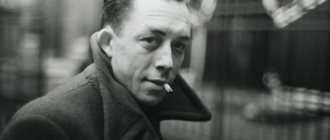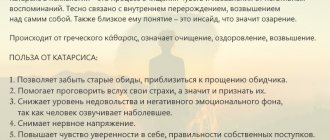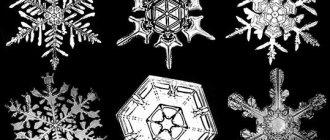Cowardice is a concept that has a negative social assessment, implying a person’s lack of mental strength to carry out necessary actions or decisions, to maintain a strong position in situations of experiencing emotional fear and extreme incidents. Cowardice, as a personality quality, is not a concept synonymous with fear, since fear and horror serve as mechanisms of survival, orientation in the world around us, they are natural and natural, while a person maintains the direction of movement. Fear corrects actions, forces you to be more attentive, take into account more different features, and perhaps change your strategy for achieving it. Cowardice deprives the ability to perceive a situation objectively and stops all human activity. Usually, the forward movement of people with a predominance of cowardice is of a forced nature, because in many situations they stop not only their own forward movement, but also the movement of the entire team.
Everyone exhibits cowardice, but those in whom this trait becomes the leading one are called cowards. It is useless to fight such reactions with willpower; it is only possible to develop your own courage, as a quality opposite to cowardice.
What is the difference between cowardice and fear?
Fear
is a person’s fear, an emotion that arises in a difficult situation, but can be overcome.
Cowardice
is a slightly different emotion. ... A cowardly person withdraws into himself and makes no attempt to change anything.
Interesting materials:
PS4 how to see how many people have played a game? Which video card should I buy a laptop for gaming? How many referees referee a football game? How much will games cost on PS5? How long was the longest game of chess? How long does a volleyball game last? How much FPS should be for a comfortable game? How many checkers should there be in the game? How many GB of RAM do you need for games? How many cores are used in games?
What it is
The definition of cowardice in any sources implies an attitude towards this quality as a weakness, and a condemned, criminal weakness. This can be explained by the fact that under the influence of emotions a person is capable of any action; sometimes a high degree of cowardice can lead to serious crimes. It turns out that fear can indeed have a strong stimulating effect, but when there is a trait of cowardice in a person, it takes on destructive forms.
Next to the destructive forms of cowardice, there is often betrayal, since, without internal resilience to withstand external pressure, a person’s opinion will change to suit the circumstances with only one goal - to avoid personal negative consequences. Cowardice excludes personal responsibility and the ability to make judicious decisions about any actions; all human activity is subordinated to fear. It is especially worth noting that fear can arise from a real threat or imaginary problems, but is experienced by a person in the same way.
It is worth carefully distinguishing between cowardice and caution, attentiveness, accuracy - temporary retreat, waiting for an opportune moment have nothing to do with stopped activity, implying rather tactics. Cowardice does not want to look closely and look for solutions, it is not able to wait or show attentiveness - this is a strong instinctive feeling that makes a person run when the source of fear approaches.
There is a wary and contemptuous attitude towards cowards in society, since one cannot expect reliability from a person. They are the first to escape, leaving the weak and helpless in trouble, they resort to lies and sabotage for the purpose of their own safety and benefit, it happens that because of the fear of revealing the secret, murders were committed. A coward is an unreliable person for joint activities or worthwhile relationships. After all, the main ability is missing - processing internal fear.
In a normal development situation and with a harmonious personality, a person is able to process his own experiences, highlight the main values on the basis of moral standards, ethical principles, and not instinctive immediate reactions. A coward has no limiting factors of internal principles, allowing instincts to guide behavior. Many believe that cowardice is the most terrible vice, lowering a person to the level of an animal, and comparisons from the animal kingdom are also not entirely flattering, since among lions, wolves, and elephants there is a tendency to protect their relatives, rather than cowardly flight.
Cowardice helps a person avoid solving important social and life problems. Procrastination, constant entertainment events, aimless pastime are tools of activity, the use of which organizes a cowardly avoidance of confrontation with unpleasant but demanding moments.
Meaning
Naturally, almost everyone can give their own definition. But we need objectivity, so let’s turn to the explanatory dictionary. A coward is “a person who is easily swayed by fear.” A wonderful definition, succinct and strictly to the point. Indeed, it is fear that makes people cowards. But the catch is that it’s completely normal to be afraid. Through horror of something, the instinct of self-preservation reveals itself. This means that it is not a matter of fear and horror that arises. The fact is that a person cannot control his emotions in the face of danger. He lacks will, endurance, perhaps patience.
Synonyms
Let’s interrupt our reflections on the phenomenon of excessive fear in the face of danger with synonyms for the noun “coward.” The list is as follows:
- bunny;
- hare soul;
- anika-warrior;
- cowardly;
- wet chicken.
Unfortunately, this time there is no way to please the reader with an abundance of synonyms on the topic. It's also a matter of censorship. We cannot place most of the definitions that suggest themselves here for moral reasons, because they are indecent. Anika warrior is a figurative expression for a person who boasts of courage far from real danger. The image has its roots in Russian folklore. To put it very briefly, the essence of the story is this: one warrior boasted of his valor and offended the defenseless. Then on some road he met Death, and he also rushes at it, knowing no fear. The snub-nosed warrior, of course, wins, and he begs for mercy, but Death takes him to his kingdom. Moral: Being a coward is not a bad thing, at least sometimes.
Courage as an object of manipulation
Sometimes, when it is known that a person is terribly brave, cunning people can play on this weakness. On the one hand, courage is a virtue, and on the other hand, when it degenerates into bravado, it is a disadvantage.
Let us recall the almost textbook example of Marty McFly, who from part to part of the famous film epic “Back to the Future” was caught in the same thing - an inferiority complex. Marty was afraid that others would think that he was a coward (the meaning of the word needs no explanation). The scriptwriters forced the character to replay the same situation over and over again, like skilled therapists, so that the hero would finally draw the right conclusion: the opinions of others are not the most important thing in life.
Everything is good in moderation
The reader probably already thought that we were defending cowards and their shameful habits. But no, the idea is completely different. The latter is reflected in the title of the subtitle. The question of what a coward and cowardice are can be answered in different ways. Everyone knows the classic character, the main character of the story “The Man in a Case,” who was completely afraid of life, any of its manifestations. And the famous phrase “No matter what happens” became a real motto. And then the conventional case became quite real. This phenomenon can hardly even be called cowardice. The hero A.P. Chekhov’s soul is simply numb with fear - this is one extreme. The other extreme is when a person rushes into all seriousness without thinking about the consequences.
For example, it may be that a person is manipulated by other people for their own interests. Knowing about the tendency to bravado, you can bring trouble to the head of the “brave”, while you yourself remain on the sidelines. When the daredevil realizes that he has been framed, it will be too late. And there are any number of such stories. Caution is one thing, and cowardice and a coward are quite another; we have already given the definition of the last characteristic of a person a little earlier. When they talk about the first quality, as a rule, they praise the person, and when they talk about the second, they scold him. But subjectively, both cowardice and caution are fed from the same source - the instinct of self-preservation, that is, fear. In other words, cowardice is nominally mean and low, but it is not worth judging someone for cowardice without knowing the details. Fear is a completely natural reaction, although it is socially condemned.
The Problem of Human Cowardice
The problem of such a manifestation as cowardice has a long history of philosophical and military disputes; this issue was raised by Socrates. Unfortunately, there is no single clear understanding of what constitutes cowardice, despite a fairly clear definition of the word. Now in each individual social group there is its own understanding of which of them is a coward and this is not due to the substitution of concepts, just for some it is the one who does not quickly make a decision, for others it is a mother who did not stand up for her son, and for others a traitor to the homeland. Various categories of values and the general cultural level of society determine cowards.
In wartime, the attitude towards cowards was quite harsh - they could be executed or imprisoned for life. The meaning of this was to protect the bulk of the population, because in war conditions the instability of the internal forces of one person can cost millions of lives and the freedom of an entire nation. Less severe punishments, but definitely present, exist in every society and at any time - this is a necessity that ensures the protection of all individuals. This is an artificial mechanism developed over millennia, aimed at the survival of the species. Punishment for cowardice exists on all continents, regardless of whether the nation is highly technological in its development or is a tribe deprived of contact with civilization.
Cowardice is an exclusively human problem, since this is absent in the manifestation of the animal world. The mechanism regulating the existence of the species forces animals, when danger approaches, to first notify their relatives, despite attracting attention to themselves and risking their lives.
The more opportunities a person receives for a separate existence, the higher the likelihood of developing cowardice in society. No one cares about the general well-being, since it does not reflect on the individual, and the point is solely in maintaining one’s position. This trend makes the concept of cowardice more blurred, but does not cancel the public’s contemptuous attitude towards manifestations of mental weakness. Initially, deserters and military traitors were called cowards, those who did not want to go hunting and risk their lives to feed the tribe, that is, cowards are those who directly threaten the lives of many people at once. This memory of the inadmissibility of cowardly behavior is fixed at the genetic level, only the manifestations of this quality become completely different in modern society.
In peacetime, increasing emphasis is placed on the moral side of the process of cowardice, that is, this is no longer a lack of active action, but an avoidance of conversation, an inability to accept responsibility, a radical change in life. Even a simple meeting can reveal a coward, for example, by not coming to it after learning that important things will be discussed. Personal immaturity becomes the reason for an increasing manifestation of moral cowardice in a person - people abandon children, abandon families out of fear of responsibility, make critical mistakes or skip promising jobs, fearing a further increase in responsibility.
The problem of human cowardice remains relevant and is changing along with social restructuring of the main social models of interaction and the immediate real civil situation. We cannot take as a starting point those examples that spoke of cowardice several centuries ago, because perhaps now there are simply no conditions for manifestation, but others have appeared and there is a need to create new criteria.
The desire to live and cowardice
Is it possible to blame a person for wanting to live? Yes, Freud, during a difficult time in his life, invented or came up with the theory that two forces operate in the body - eros and thanatos. And each of them is equal in its rights, moreover, thanatos is even more energetic, for every life ends in death. And the ultimate conclusion of the founder of psychoanalysis is this: the living strives for death. But real practice does not confirm the message, but, on the contrary, refutes it: the biological always wants to live.
Remember the wonderful episode of the film “Braveheart” (1995), when W. Wallace persuades him to fight the British, and they answer him that if they run away now, they will live? The military leader recognizes the truth of these words, but contrasts the image of a quiet, boring old age with the image of heroic death in the battle for freedom. And those who were cowards some time ago rush into the fray with enthusiasm. Some will say that this is Hollywood. Everything goes into external effect. But somehow people were inspired? And there are no battles without casualties. This means that a person is not so much afraid of dying as of the fact that his death will be meaningless. If a man fears the same thing, can he be considered a coward? This is an open question.











